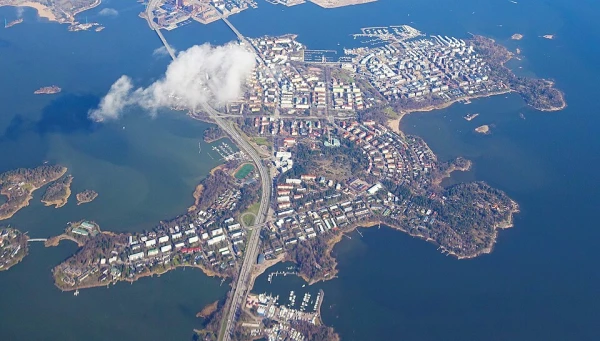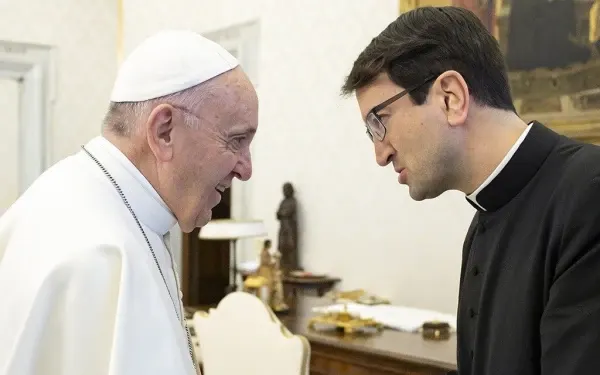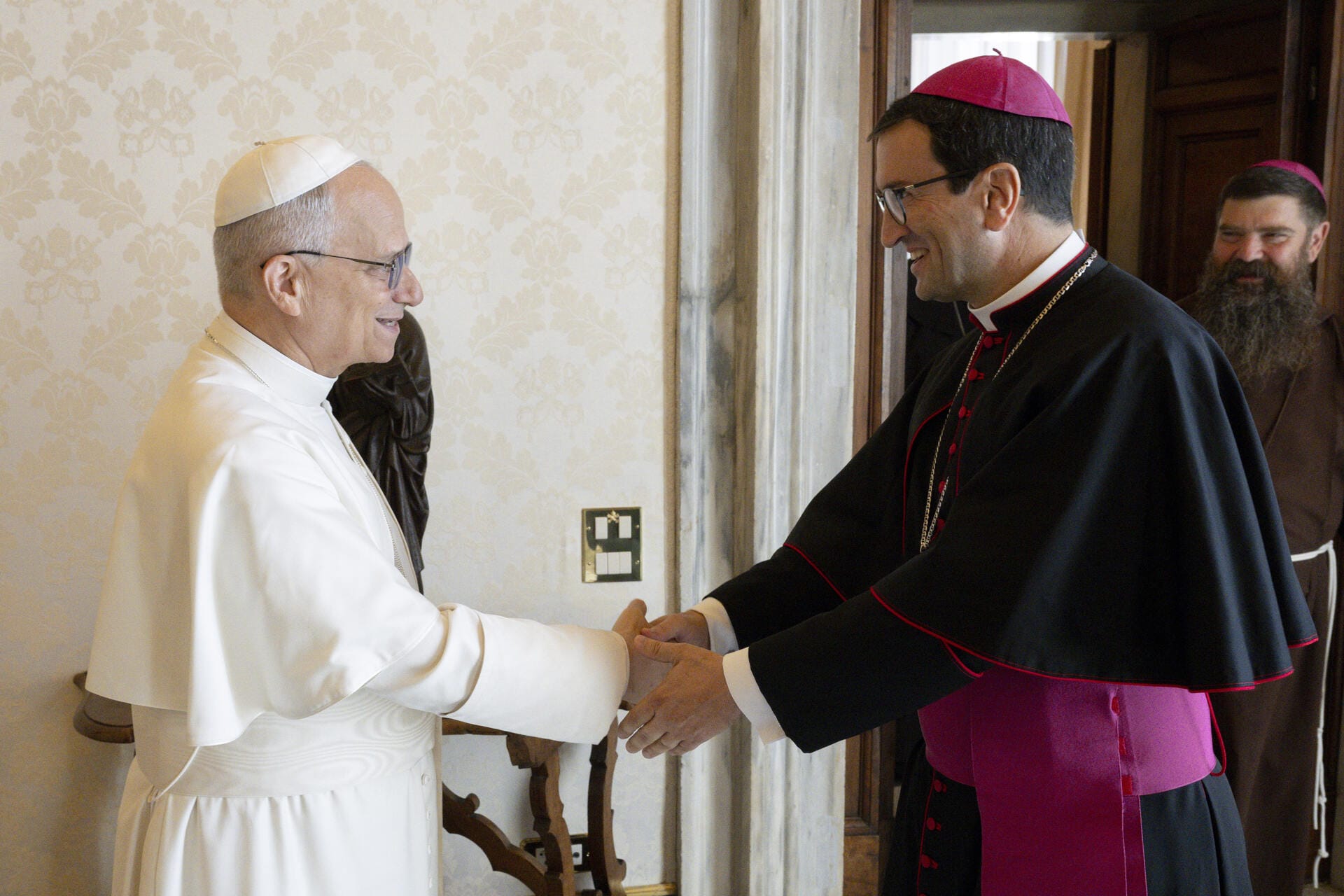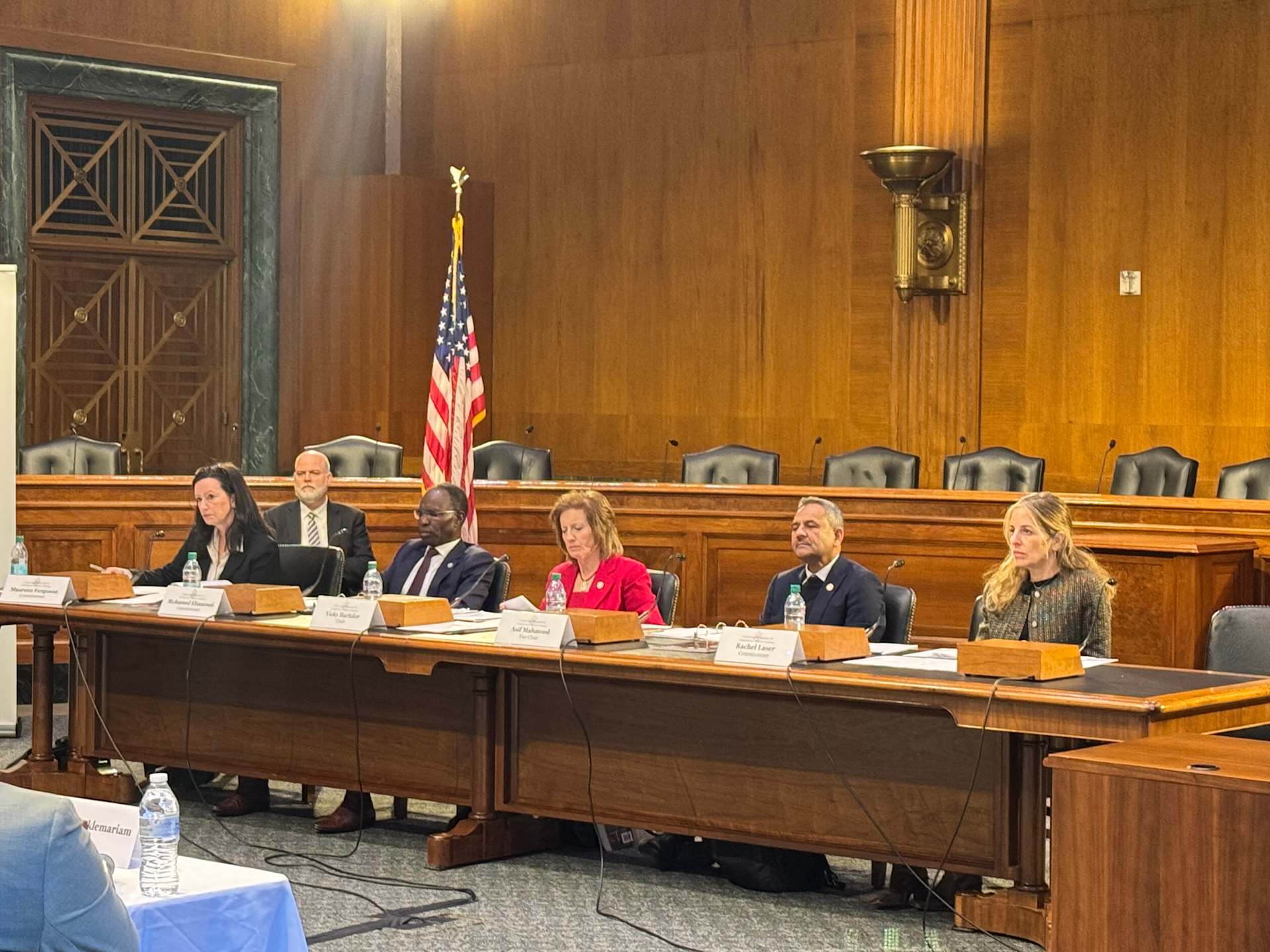 The HDMS Niels Juel (F363) warship, an Iver Huitfeldt-class frigate of the Royal Danish Navy, is moored in Nuuk, Greenland, on June 15, 2025. | Credit: Ludovic MARIN/AFP via Getty Images
The HDMS Niels Juel (F363) warship, an Iver Huitfeldt-class frigate of the Royal Danish Navy, is moored in Nuuk, Greenland, on June 15, 2025. | Credit: Ludovic MARIN/AFP via Getty Images
Jan 14, 2026 / 06:00 am (CNA).
Greenlandic Catholics are reportedly expressing opposition to United States plans to acquire the territory, while Nordic Catholic leaders are waiting to see how the situation develops amid potential U.S. military intervention.
U.S. President Donald Trump has signaled repeatedly that he wants the U.S. to annex Greenland in some form, with White House Press Secretary Karoline Leavitt describing the matter as a "national security priority."
Utilizing the military to that end "is always an option," Leavitt said on Jan. 6.
The apparent threat of military action on Greenland touched off a global controversy, with U.S. advocates praising the White House's ambitions and critics decrying it as an aggressive power move.
Trump on Jan. 11 indicated again that the effort was motivated by security concerns. "If we don't [acquire Greenland], Russia or China will, and that's not going to happen when I'm president," he told reporters on Air Force One.
'Too early to make any definitive statements'
A sparsely populated landmass home to about 55,000 permanent residents, Greenland is among the least Catholic territories in the West, with the vast majority of Greenlanders belonging to the Lutheran church.
Catholics in the area are served by the Diocese of Copenhagen, located approximately 2,000 miles east of Nuuk, the most populous city on the island. Though mostly self-administered, the region falls under the authority of the Kingdom of Denmark.
Sister Anna Mirijam Kaschner, CPS, the secretary-general of the Nordic Bishops' Conference, told CNA that the bishops — who serve Denmark, Sweden, Norway, Finland, and Iceland — will be holding a plenary meeting in March.
"By then we expect to have a clearer understanding of the situation," she said. "It is very likely that the matter will be discussed at that time."
It is "too early to make any definitive statements," Kaschner said, though she added that there is some consternation already among Greenland's small Catholic population, which is almost entirely concentrated in a single parish, Christ the King Church in Nuuk.
"Parishioners in Greenland have expressed concern about the situation involving the United States," she said. "According to the parish priest, many have said that Greenland is their land, their country, and their home, and that they do not wish to become Americans."
That sentiment has been echoed by political leaders in Greenland, a territory that has developed a distinct identity quite apart from its North American geography and its European administration.
A Jan. 9 joint statement from the country's major political parties said bluntly: "We do not want to be Americans, we do not want to be Danes — we want to be Greenlanders."
"The future of our country is for the Greenlandic people themselves to decide," the leaders said, vowing to "independently decide what our country's future should look like — without pressure, without delays, and without interference from others."
The territory's leaders have considerable latitude for self-governance, particularly after a self-rule law in 2009 established local control of the legal system and law enforcement, among other jurisdictions. Greenland is also permitted to seek full independence from Denmark if its people desire to do so.
With Catholic representation on the island sparse, the Church's role in any future deliberation may be limited. Still, Kaschner said, Church leaders in Europe may develop a stance on the issue in the near future.
"Generally, Catholic leaders in the Nordic countries handle issues like this with caution, stressing respect for local people, existing sovereignty, and the dignity of affected communities," she said.
Ahead of a clearer picture of the international dispute, she said, "there's no single official stance beyond a focus on the well-being and wishes of Greenland's people."














